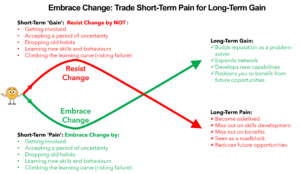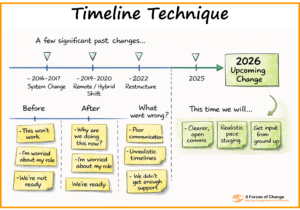The £50bn investment in the High Speed 2 (HS2) rail link exemplifies the difficulties governments have in getting the public on board with change. In the midst of party conference season, HS2 has become a political talking point and is getting a lot of media attention, reminding us of the perennial problem governments face in introducing controversial initiatives such as GM crops, cloning and the culling of badgers. As well as considering the rights and wrongs of each initiative there is a fundamental psychological issue of ‘control’ stirring a strong emotional response.
When people feel that change is being made without their involvement or agreement the natural reaction is opposition. Any change, good or bad, that appears to be forced upon us is bound to cause a negative reaction from a large proportion of the population. So when media headlines ring out with scare stories about the countryside being ruined by wind turbines people react unconsciously to a feeling that ‘big brother’, in the form of the government of the day, is dictating change. They may debate the rights and wrongs of wind energy, but they are already pre-disposed to opposition by the way they news of change is sprung on them, a situation exacerbated by the media’s need to have a compelling story of conflict.
If governments use newspapers and TV as their main channel of communication with the public they will always be on the back foot. For big change to be successful people need to be given as much opportunity as possible to debate the issues or at the very least think them through before they appear to be a foregone conclusion. One of the golden rules of successful change is ‘no surprises’.






